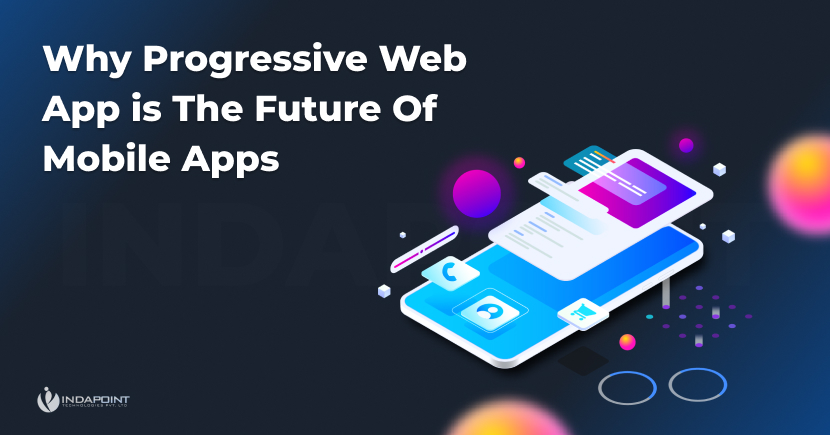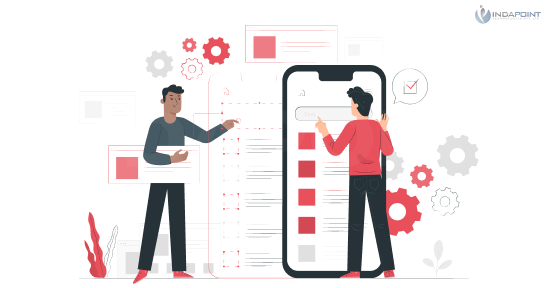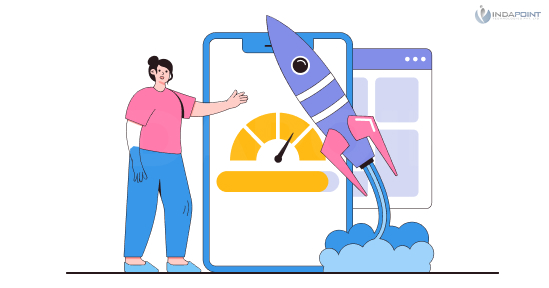Why progressive web app is the future of mobile apps
May 9, 2022

A Progressive Web App (PWA) is a magnificent web application that uses distinguished web capabilities to provide app-like expertise in the field. These apps are defined by a set of individual component aspects that are deployed to servers, accessible via URLs, and even search engine indexed!
Progressive Web Apps is a reflection of native mobile apps in appearance. They are just standard web pages or web pages. As a consequence, you get a fantastic mix of the best features of a modern browser plus the advantages and delights of a mobile experience.
Progressive web apps serve as a link between native apps (such as those found in the Apple App Store) and standard web pages. Instead of going to an app store, browsing, and downloading an app, your users may visit your website and add your PWA to their home screen. Clients won’t realise they’re using a PWA if it’s well-planned because they’re getting an application-like experience.
PWAs have a similar gleaming and welcoming appearance.
We created a Progressive Web App so that we could put resources into the web insight across all programmes. Not only did we find significant improvements in browsers that support the most recent capabilities, but we also saw an increase across the board. That’s an indication of a wise investment, one that will continue to pay off as browsers improve.What is the mechanism behind Progressive Web App?
Using a single code base across platforms, PWA operates on both desktops and mobile devices. In comparison to native apps, PWAs benefit from plugins, a broad web ecosystem, and a larger community, and they’re also easier to install and manage.
JavaScript models can be linked to HTML views using the JS framework.
Progressive Web Apps: Highlighting Features
Customer retention and conversion ratios are both improved when an app loads quickly. PWA is being embraced by organisations due to its superior presentation capabilities.
The following are a few PWA must-have features:
Progressive Web Apps Are Time-Saving And Cost-Effective

PWAs outperform native apps in terms of efficiency. They work on-demand and are constantly available, taking up no valuable memory or bandwidth on a smartphone. When a client chooses a PWA over local responsiveness of the same application, they consume less information (just like the case for the Twitter PWA). This is not to say that customers should forego the convenience of a native programme. They can still save the PWA to their home screen because it can be installed without the need for a full download.
This emphasises not only the enhanced user experience but also the earlier issue of consumer acceptance. Users must make an informed decision, if not a commitment, to download and keep a native app. The decision to uninstall that programme is also final. Clicking a basic link, on the other hand, is a straightforward task that involves no thought, minimal data storage on your device, no lengthy download time, and no installation. Progressive web apps are also more cost-effective from the developer’s perspective. They’re easier to construct and maintain. You can alternatively make a single version of the app that works across all devices and looks the same. PWAs are linked together to chip away at programmes that are common to all gadgets, as opposed to the segmented market of local versatile applications, which necessitates firms developing different application structures for Apple and Android gadgets. Even better, they’re less expensive to create than a native app.
Fundamental ideas
PWAs perform and function in the same way as native applications do; without a doubt, these apps provide a smooth user experience with integrated functionality. They include high-end features that make these apps more customer-focused. PWAs are built on the foundations of trust, great performance, and increased user engagement.
Boost user involvement

Due to their high discoverability, frictionless, responsive, and easy-to-find features, PWAs engage more customers. To engage more customers, these apps load faster and perform seamlessly.
Reliability
The load on the user’s device is independent of network connectivity, progressive web applications are dependable. This implies that customers can use these applications to view stored data when there is no or limited web access. The important components are cached in advance, which removes network dependency and guarantees a consistent consumer experience.
Responsive

Apps are responsive, which means they adjust to different screen sizes. These applications work with a variety of operating systems and are easily accessible on a variety of devices, including cell phones, tablets, computing devices, and workstations.
Performance

Clients who use PWA receive a quick response to any movement they make. Moreover half of all users say they won’t return to a website if it takes longer than three seconds to load. The client believes that the site should load quickly and be error-free, with no stagnant interaction points, erratic routes, or unnecessary scrolling.
Minimal expenses.
PWAs are less expensive than local mobile applications because they come with cutting-edge development tools and techniques. Furthermore, you get information assurance, security, minimal application complexity, and cross-stage programming at a much lower cost.
The Future Is Progressive Web Apps
People couldn’t get enough of native apps when they initially became available. People are increasingly turning away from applications, according to recent trends. The majority of users download zero apps every month, according to comScore (via TechCrunch). To be successful, a native app must be outstanding, which is a high requirement for a business app.
Progressive Web Apps is being driven by Google, Apple, and Microsoft, the three primary standards in native app distribution. PWAs are the ideal method to stay ahead of the game in the mobile business because of their inherent flexibility.
PWAs are demonstrating that every company can benefit from this technology, from Twitter to Starbucks. Tinder’s load speeds were halved as compared to the company’s native app. Longer sessions, more messages sent, and more swipes resulted as a result of this. Users might browse Tinder via mobile or desktop devices with a PWA, broadening the target demographic.
Final Remarks
Staying ahead of the competition demands using PWAs. Users of native apps face a variety of issues, including limited storage space, high data usage, development costs, internet connectivity, and so on.
All of these difficulties are addressed by PWA platforms, which provide a superior user experience, increased online accessibility and discoverability, cost-effective development, cross-platform accessibility, and, most importantly, offline data access.






